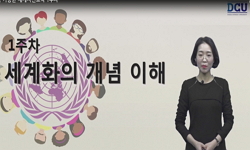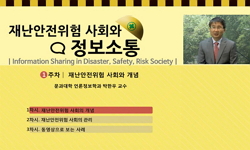Based on university students’ perceptions of risk issues, this study suggests that education on competencies and practices necessary for recognizing and responding to a risk society can be a concrete educational model that can fulfill the need for g...
http://chineseinput.net/에서 pinyin(병음)방식으로 중국어를 변환할 수 있습니다.
변환된 중국어를 복사하여 사용하시면 됩니다.
- 中文 을 입력하시려면 zhongwen을 입력하시고 space를누르시면됩니다.
- 北京 을 입력하시려면 beijing을 입력하시고 space를 누르시면 됩니다.

위험사회 중심의 교양 교과목으로서 세계시민교육 방안 = Global Citizenship Education as a Liberal Arts Course Centered on Risk Society
한글로보기https://www.riss.kr/link?id=A109018020
- 저자
- 발행기관
- 학술지명
- 권호사항
-
발행연도
2024
-
작성언어
Korean
-
주제어
Risk ; Global Risk Society ; Citizenship ; Liberal Arts Education ; Global Citizenship Education ; 위험 ; 글로벌 위험사회 ; 시민성 ; 교양교육 ; 세계시민교육
-
등재정보
KCI등재
-
자료형태
학술저널
-
수록면
289-311(23쪽)
- 제공처
-
0
상세조회 -
0
다운로드
부가정보
다국어 초록 (Multilingual Abstract)
Third, the analysis of self-efficacy in a risky society showed that liberal arts students had higher self-efficacy than non-college students. Fourth, liberal arts education was found to have an impact on the development of global citizenship skills. Fifth, critical thinking skills, courage to act, and a sense of solidarity were the most important skills needed for the safety of a dangerous society, and ‘national laws and institutional measures’ were the most important. Based on the results of this study, implications were suggested for university and government policies to foster global citizenship competencies among university students in liberal arts education.
Based on university students’ perceptions of risk issues, this study suggests that education on competencies and practices necessary for recognizing and responding to a risk society can be a concrete educational model that can fulfill the need for global citizenship education in liberal arts education. To this end, a survey was conducted on the risk perceptions of students who took and did not take a global citizenship liberal arts course at D University in Seoul. The results of this study are summarized as follows. First, when analyzing the perceptions of each risky social area, we found that economic life-related risks were the highest in terms of the likelihood of risk occurrence, exposure to risk, vulnerability to risk, and response to risk. Liberal arts students were more urgent to expose and deal with risks related to natural disasters, the environment, and politics and foreign relations, while non-college students were more urgent to deal with risks related to health, life cycle, economic life, and social life. Second, when analyzing the difference in perceptions of the severity of risk society, liberal arts students were more likely to be exposed to risks related to social life, the environment, life cycle, economic life, and natural disasters, while non-college students were more likely to be exposed to risks related to life cycle, economic life, social life, the environment, and natural disasters.
Third, the analysis of self-efficacy in a risky society showed that liberal arts students had higher self-efficacy than non-college students. Fourth, liberal arts education was found to have an impact on the development of global citizenship skills. Fifth, critical thinking skills, courage to act, and a sense of solidarity were the most important skills needed for the safety of a dangerous society, and ‘national laws and institutional measures’ were the most important. Based on the results of this study, implications were suggested for university and government policies to foster global citizenship competencies among university students in liberal arts education.
동일학술지(권/호) 다른 논문
-
청소년 국제교류 수업의 효과성 연구 : J지역 초등학생 고학년의 글로벌 역량을 중심으로
- 한국국제문화교류학회
- 김태훈
- 2024
- KCI등재
-
독일 대학입학 자격시험(Abitur) 준비와 대학의 신입생 선발 과정에 관한 연구
- 한국국제문화교류학회
- 정기섭
- 2024
- KCI등재
-
말레이시아 난민학교 유아반 교사의 전문성 신장을 위한 교사교육 사례연구
- 한국국제문화교류학회
- 최예린
- 2024
- KCI등재
-
대학생의 문화적 역량, 셀프리더십, 자아개념 및 대학생활적응의 구조적 관계
- 한국국제문화교류학회
- 임신웅
- 2024
- KCI등재




 eArticle
eArticle






